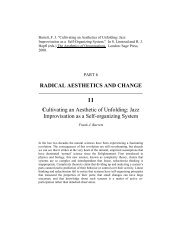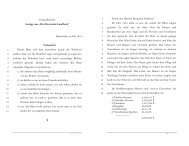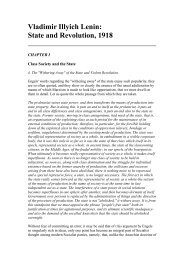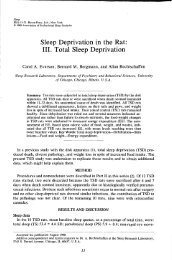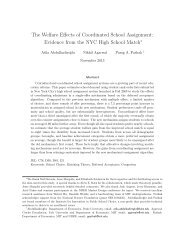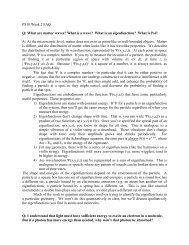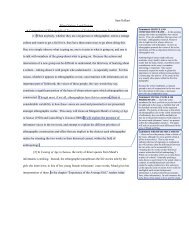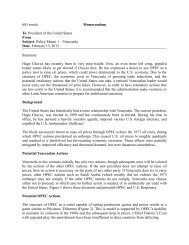mental health- counseling-1.pdf - iSites - Harvard University
mental health- counseling-1.pdf - iSites - Harvard University
mental health- counseling-1.pdf - iSites - Harvard University
Create successful ePaper yourself
Turn your PDF publications into a flip-book with our unique Google optimized e-Paper software.
NASPA Journal, Vol. 41, no. 1, Fall 2003<br />
mitted suicide. Ho’s family filed suit against <strong>Harvard</strong> alleging negligence<br />
by failing to adequately monitor the troubled student, failing to<br />
warn and protect her roommate from harm, and failing to maintain a<br />
“reasonably safe and secure environment” (Mandel, 1998).<br />
In another tragic case that has received extensive media coverage, the<br />
family of Elisabeth Shin, an MIT student who committed suicide in<br />
2000, filed a $27 million dollar lawsuit alleging negligence and failure<br />
to provide adequate care for their daughter. The Shin lawsuit further<br />
argues that university personnel should have told them that their<br />
daughter was suicidal, whereas MIT officials have argued that they<br />
were following ethical guidelines that do not allow them to break<br />
patient confidentiality (Healy, 2002a; Sontag, 2002). These cases have<br />
raised a number of complex issues regarding the role and responsibility<br />
of higher educational institutions when dealing with troubled students.<br />
Professional ethical guidelines prohibit the release of confidential<br />
information to others, including parents, unless students are in<br />
imminent danger of harming themselves or another person (APA,<br />
1992). However, these lawsuits appear to be challenging current standards<br />
of confidentiality and advocating that universities resume their<br />
former role of acting in loco parentis.<br />
An article that appeared in the Chronicle of Higher Education alleged<br />
that campus <strong>counseling</strong> centers are staffed by inadequately trained<br />
personnel who often do an inadequate job of structured interviewing,<br />
diagnosis, treatment planning, long-term therapy, and follow-up<br />
(Chisolm, 1998). However, a national survey of <strong>counseling</strong> center<br />
directors that was conducted in response to Chisholm’s criticisms<br />
found that her assertions were not validated (Stone, Vespia, & Kanz,<br />
2000). Rather, the survey found that 94% of <strong>counseling</strong> center staff<br />
have a doctorate in <strong>counseling</strong> or clinical psychology and are “welleducated,<br />
licensed and trained” (Stone, Vespia, & Kanz, 2000, p.<br />
509). However, they did find that 41% did not have formal follow-up<br />
procedures in place. The authors recommended that <strong>counseling</strong> centers<br />
could benefit from reviewing their current practices and that they<br />
institute formal policies and standardized formats and outcome measures<br />
for assessment and treatment (Stone, Vespia, & Kanz, 2000). In<br />
order to provide high-quality <strong>mental</strong> <strong>health</strong> services, it is critical that<br />
<strong>counseling</strong> centers have the necessary resources to carry out their mission<br />
in an effective and ethical manner. It is both “ethically unwise and<br />
174



